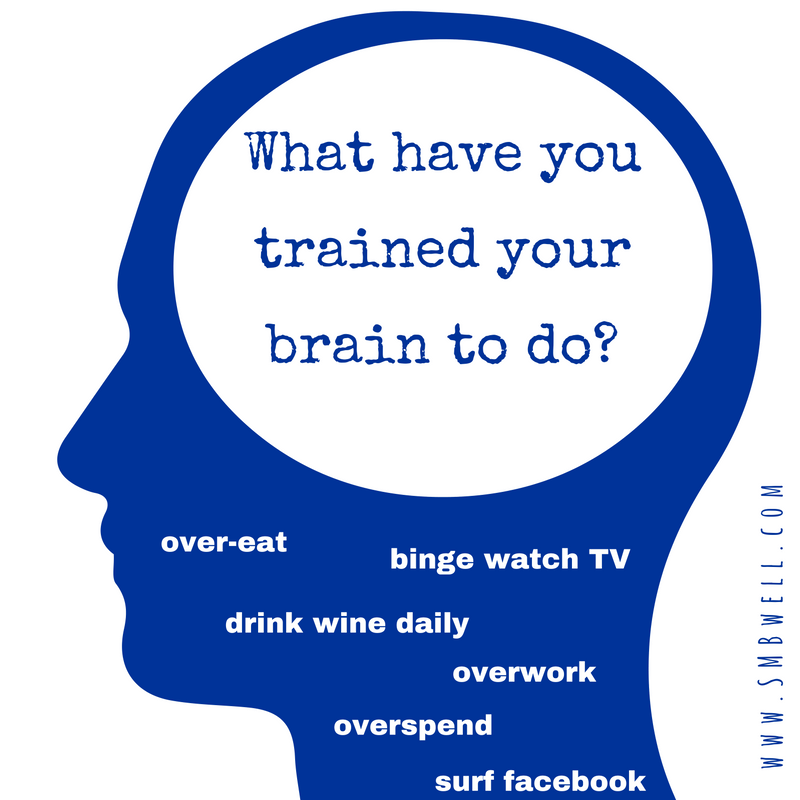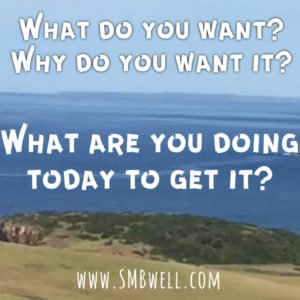Warriors!!! A new month starts tomorrow! What a great opportunity to remember the goals we set in January, reflect on what we’ve been doing since then, and adjust our sails to finish the year strong.
Answer these six questions to set your course:
- What did I enjoy about summer?
- What do I want my September to be like?
- What do I not want my September to be like?
- What are the top three feelings that I feel most days?
- Who are the 3-5 people I spend most of the time with aside from my kids? How do I feel after spending time with them?
- How would I like my life to be different on December 1st?
- Reaching for a glass of wine after work,
- Driving your car,
- Shutting off your alarm instead of working out,
- Getting a second bowl of ice cream,
- Brushing your teeth
Did any of your answers surprise you? Great news is, that by thinking about what you wanted your year to be like in January and by visualizing how you’d like the rest of your year to be, you can get your brain to do some of the hard work in getting there. How? By understanding the two types of functioning thought processes: automatic consciousness and our executive functioning. To keep it super simple, think of executive functioning as the part of your brain that is conscious and that allows us to think about our thinking. It occurs in the pre-frontal cortex. Automatic consciousness refers to all of the things that we’ve studied since being kids, repeated, and are now automatic. It occurs in the back of the brain, the cerebellum. ¹
Why does it help to know about our brain? Only 3-5 % of our daily behavior comes from the pre-frontal cortex. That means that only 3-5 % of the time that we do something, we have made a conscious decision to do that. The other 95-97% of the time our brains default to thousands of automatic neural pathways in our cerebellum that produce results that we don’t even think about (and might not want).
What are examples of these automatic neural pathways?
Why is it important to understand the difference between automatic consciousness and executive functioning? It allows us to effectively and efficiently change habits and behaviors. Most of us try to use will power to change our behavior. When we say: “I’m going to force myself to stop eating at night” we are pitting our conscious mind against our unconscious mind. Because we have trained our unconscious mind in the way we have, it’s over 40,000 times stronger than our conscious mind. Those odds are why will power does not work to change behaviors. If we’ve been overeating and we’d like to stop, we have to take our brains to the gym, just like we take our bodies to the gym.
There are many things for your brain to do at “brain gym”: meditating, journaling, working with a thought coach, etc… If you’re not sure how to begin, sign up for my newsletter as this week the recommended book and podcast provide relevant tools. Personally, I’d love to work with you one-on-one or through my popular #6weeks2 Reboot program. If you want to look at how you’re treating your brain, here’s a free questionnaire to help.
Read your answers to questions 2 and 3 again. Set a short term goal for September. What do you want? Why do you want it? What do you have to do each day to get it?
Set your brain to work and go get it!
¹Hi! I want to re-iterate that my break-down of the brain into these two parts is a huge generalization and is done to give an overview of what’s happening in our heads. If you’re a neuroscientist, my apologies. If you’re fascinated by the brain and want to learn more, contact me. My style of coaching uses the brain to power our work so, we can work together or we can share our favorite “brain books”.






